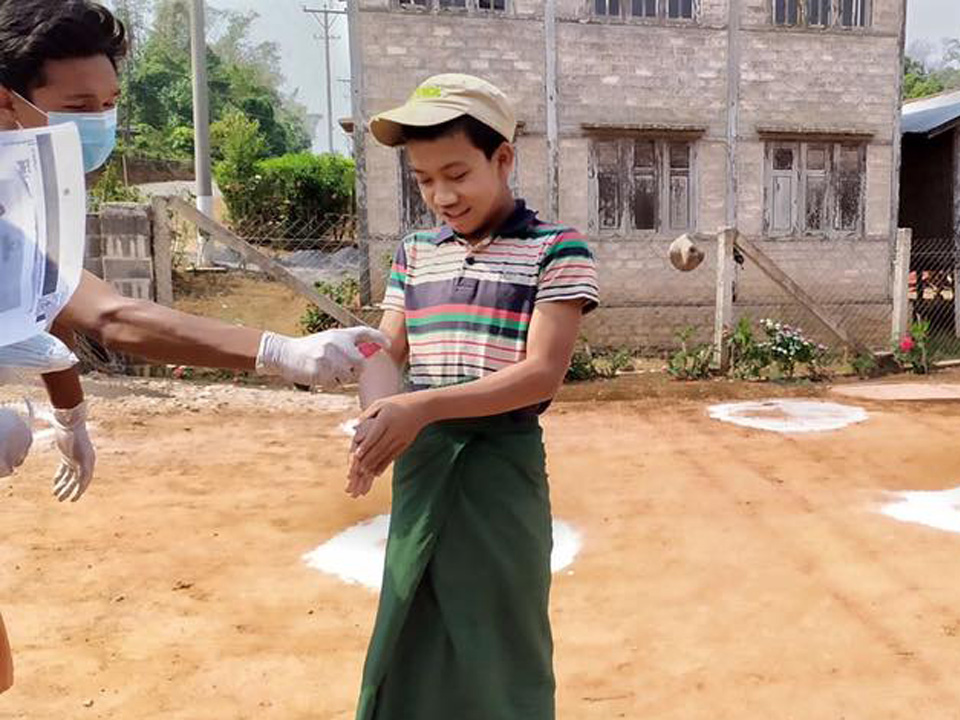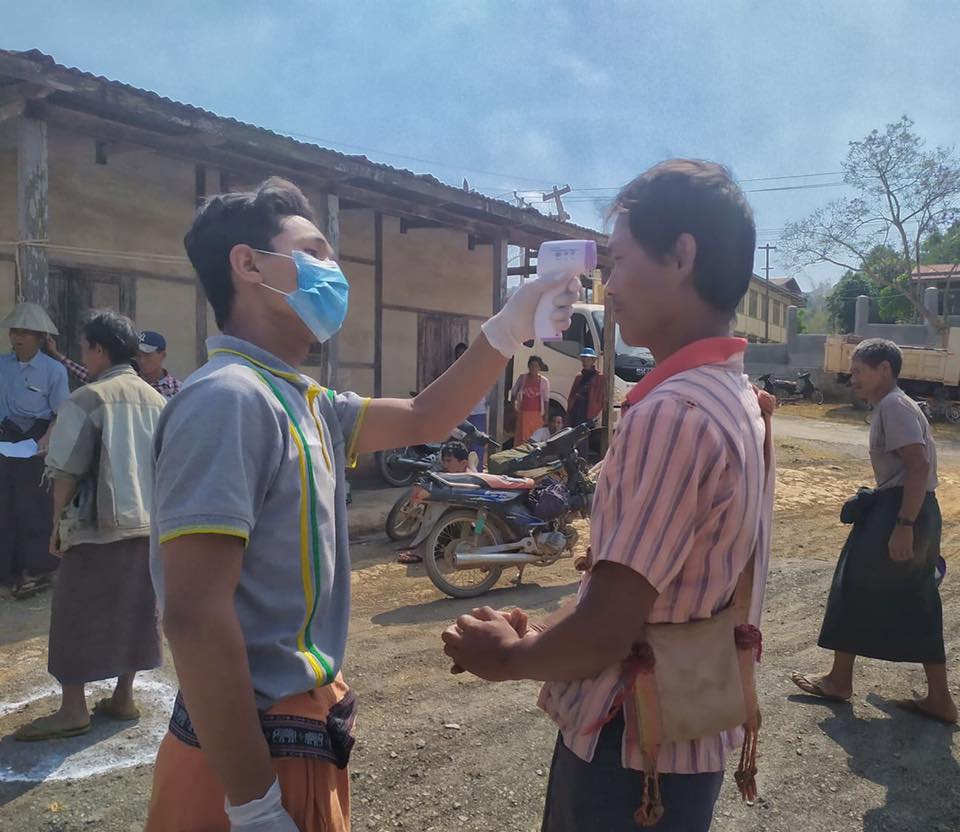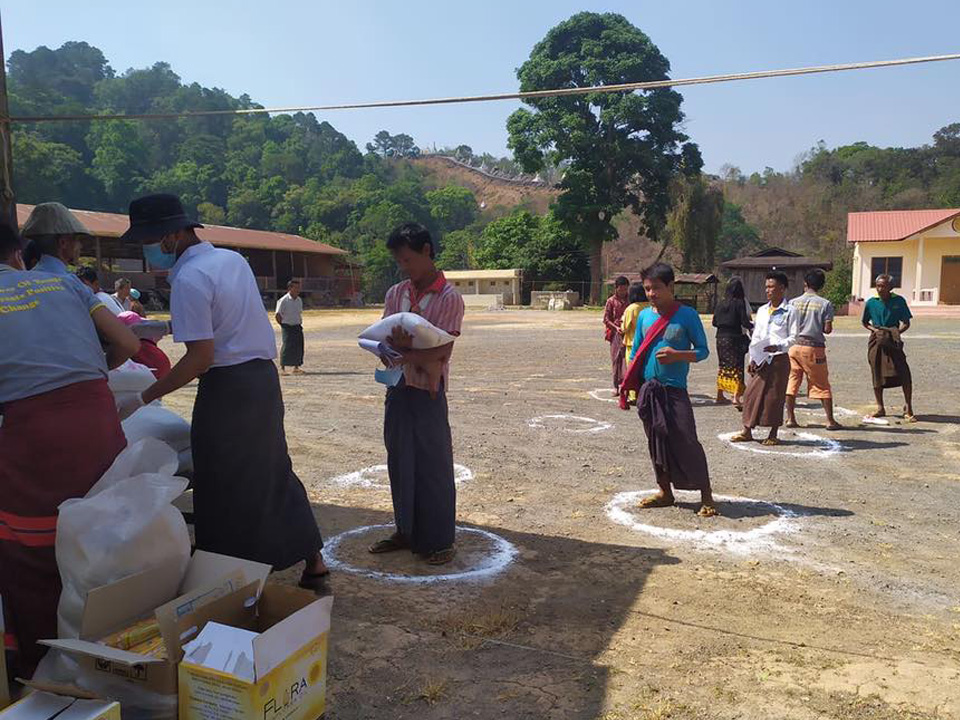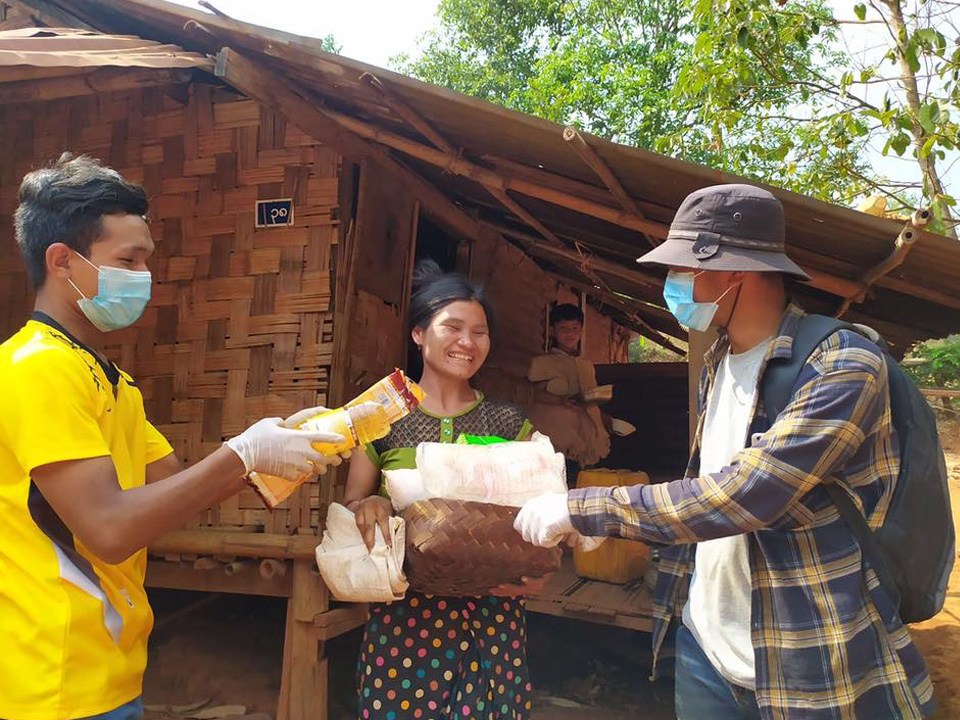Volunteers of the Mong Pan Youth Association (MPYA) and Nam Khone Alumni Network went around the communities in Ywar Ngan and Kalaw Townships and some villages in Taunggyi District in Southern Shan State, Myanmar, to raise awareness on the COVID-19 pandemic in the early weeks of April. As the government imposed a lockdown in the country, these active youth groups took initiative to inform the citizenry in the villages where information was not very well disseminated nor accessible. As part of the campaign, they introduced the basic steps to prevent spreading the virus and explain the importance of social (physical) distancing. They also gave advice on how to handle a person who is suspected of being infected, and the importance of quarantine measures for returning migrant workers, amongst others.
To prepare for the community information campaign, the volunteers were trained by the Covid-19 Prevention Volunteer Group-Southern Shan, and used the fact sheets developed by the latter, and from the Myanmar Institute for Peace and Security Studies.


The youth volunteers were also quick to recognize the needs of the local hospitals and community clinics in Ywar Ngan township. MPYA donated essential items such as face masks, personal protective equipment (PPE), hand sanitizers, and gloves to the general hospital and community clinics.

They also distributed food to some 410 families in Ywar Ngan and Kalaw Townships, and in one village in Taunggyi District, since it was anticipated that government food aid will still take a while. The food supplies were rice, oil, beans and different kinds of noodles. Through MPYA’s engaged youth leaders and its wide network of alumni, they were able to reach the remote communities in Myanmar. They selected the more vulnerable members of the community, in coordination with the local authorities. They also coordinated with the government committees, which enabled them to bring these supplies to the communities.

As the youth volunteers relayed, the villagers were very delighted for the information and support they received. This initiative was very timely, as people had to observe the lockdown even it was the Thingyan festival (Myanmar New Year). Some of the villagers observed that more people followed the proper way of wearing masks, and prevention measures were being better observed than before. The food supplies eased the burden of the people.

As for the youth volunteers, they said that this experience led them to become more unified and active, and increased their interest in community development. Their efforts also earned recognition from a Head of the village who was proud to see the youth leading this project and appreciated the good quality of the food supplies that were given.
While the MPYA winds down this campaign, they do not forget the grave concerns that villagers had confided in them, and that is their worry about food security, should the lockdown last for a long time.
All photos courtesy of Mong Pan Youth Association




